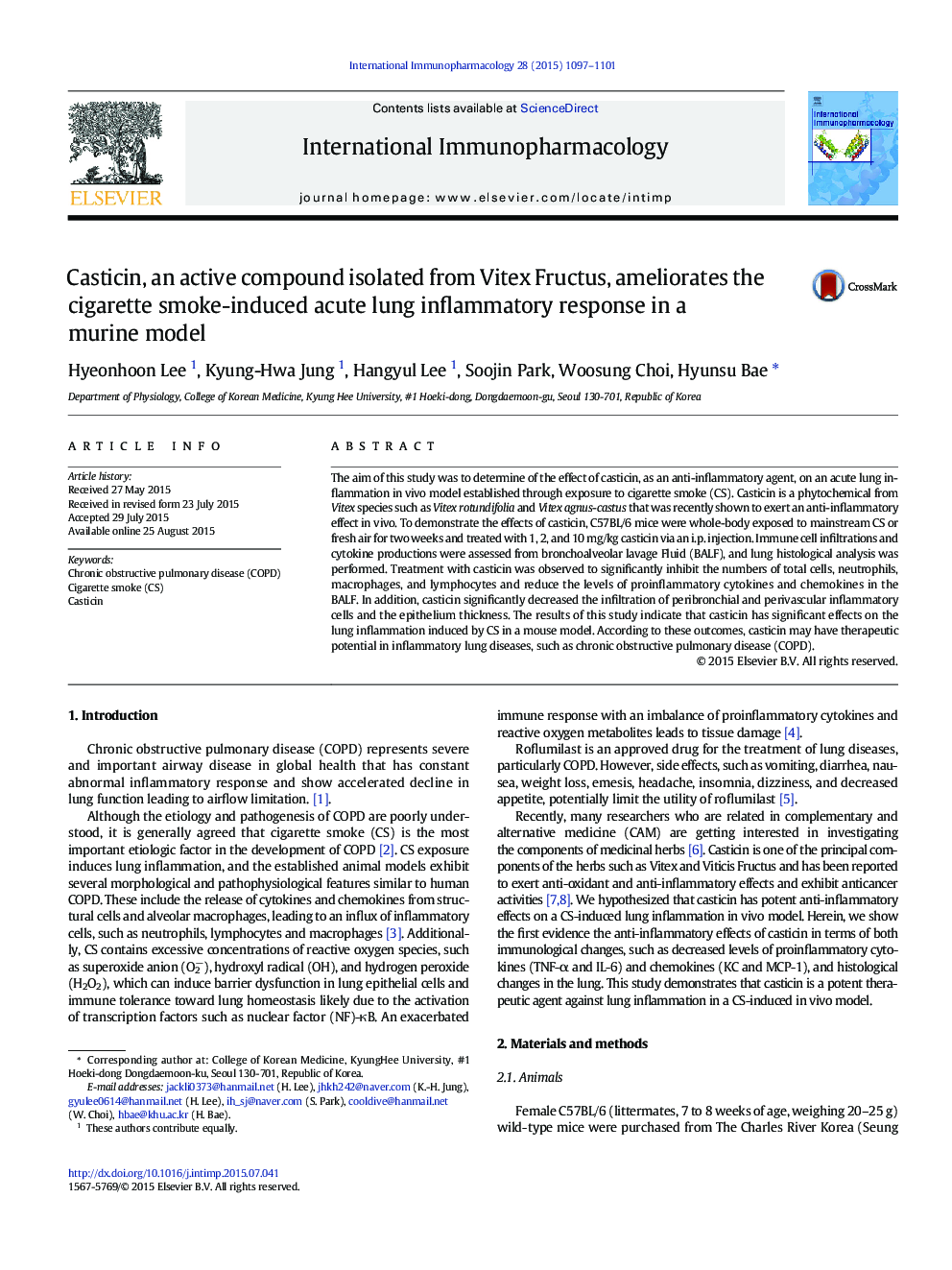| Article ID | Journal | Published Year | Pages | File Type |
|---|---|---|---|---|
| 2540407 | International Immunopharmacology | 2015 | 5 Pages |
•Casticin attenuates cigarette smoking (CS)-induced lung inflammation.•Casticin inhibits CS-mediated expression of TNF-α, IL-6, KC and MCP-1.•Casticin could be a beneficial candidate for the suppression of lung inflammation caused by CS.
The aim of this study was to determine of the effect of casticin, as an anti-inflammatory agent, on an acute lung inflammation in vivo model established through exposure to cigarette smoke (CS). Casticin is a phytochemical from Vitex species such as Vitex rotundifolia and Vitex agnus-castus that was recently shown to exert an anti-inflammatory effect in vivo. To demonstrate the effects of casticin, C57BL/6 mice were whole-body exposed to mainstream CS or fresh air for two weeks and treated with 1, 2, and 10 mg/kg casticin via an i.p. injection. Immune cell infiltrations and cytokine productions were assessed from bronchoalveolar lavage Fluid (BALF), and lung histological analysis was performed. Treatment with casticin was observed to significantly inhibit the numbers of total cells, neutrophils, macrophages, and lymphocytes and reduce the levels of proinflammatory cytokines and chemokines in the BALF. In addition, casticin significantly decreased the infiltration of peribronchial and perivascular inflammatory cells and the epithelium thickness. The results of this study indicate that casticin has significant effects on the lung inflammation induced by CS in a mouse model. According to these outcomes, casticin may have therapeutic potential in inflammatory lung diseases, such as chronic obstructive pulmonary disease (COPD).
Graphical abstractFigure optionsDownload full-size imageDownload as PowerPoint slide
